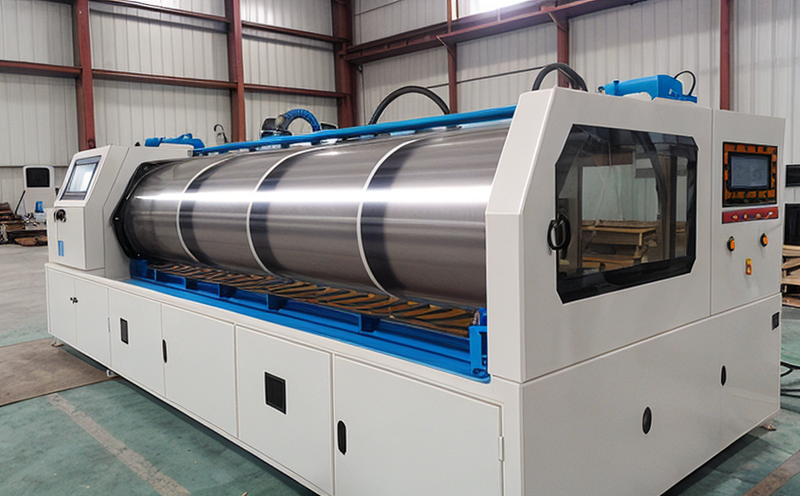EN ISO 6429 Determination of resistance to abrasion of coated fabrics
The EN ISO 6429 standard provides a method for determining the resistance to abrasion of coated fabrics. This is crucial in industries where textiles need to withstand abrasive conditions, such as industrial garments and conveyor belts. The test measures how long a specimen remains intact under specified rubbing or sliding conditions. This ensures that materials meet safety standards and perform their intended function effectively.
The standard specifies the use of a modified Martindale Abraser. The abrading material is typically a synthetic fiber, which is rubbed against the fabric in a specific manner to simulate real-world abrasion. The test involves fixing the specimen on a frame and subjecting it to controlled rubbing or sliding motions. The number of cycles before the specimen fails (i.e., before it loses its integrity) provides a measure of its abrasion resistance.
Preparation of the specimens is critical for accurate results. Specimens are cut from the fabric according to the specified dimensions, which ensure that they represent typical usage conditions. The test also involves conditioning the samples in a climate-controlled environment to simulate real-world conditions before testing. This ensures that the results are not influenced by environmental factors.
The standard includes detailed acceptance criteria for both visual and mechanical examination of the specimens after the abrasion test. Visual inspection checks for any visible damage, while mechanical tests assess the strength and integrity of the fabric. Compliance with these criteria is essential to ensure the reliability of the test results.
Real-world applications of this test are numerous in industries such as automotive, construction, and aerospace. For instance, industrial workwear manufacturers use this test to ensure that their garments can withstand the harsh conditions encountered during manufacturing processes. In the automotive industry, this test helps in selecting materials for conveyor belts that must endure constant abrasion.
The Martindale Abraser is a key piece of instrumentation used in this test. It is designed to provide consistent and reproducible results. The equipment's precision is critical to ensure accurate testing and reliable data. Proper calibration and maintenance are essential to maintain the accuracy of the test results.
Industry Applications
The EN ISO 6429 standard finds application in various industries where textiles need to withstand abrasive conditions. Here are some key areas:
- Industrial Garments: Ensuring that workers' uniforms can withstand the wear and tear of industrial environments.
- Automotive Industry: Selecting appropriate materials for conveyor belts in manufacturing plants.
- Construction: Testing materials used in heavy-duty applications like scaffolding or protective gear.
- Aerospace: Evaluating the durability of textiles used in high-stress environments, such as those found in aircraft interiors.
| Industry | Key Application |
|---|---|
| Industrial Garments | Durability under industrial wear and tear |
| Automotive Industry | Selecting abrasion-resistant materials for conveyor belts |
| Construction | Evaluating the durability of scaffolding materials |
| Aerospace | Durability in high-stress environments like aircraft interiors |
Customer Impact and Satisfaction
The impact of EN ISO 6429 compliance on customers is significant. By ensuring that coated fabrics meet the standard, manufacturers can:
- Enhance Product Quality: Guaranteeing durability and performance under abrasive conditions.
- Meet Regulatory Requirements: Compliance with international standards ensures market access to a global customer base.
- Improve Reputation: Demonstrating commitment to quality and safety enhances brand reputation.
The satisfaction of customers is directly tied to the reliability and performance of the products they purchase. By adhering to this standard, manufacturers can build trust with their clients, leading to long-term relationships and repeat business.
International Acceptance and Recognition
The EN ISO 6429 standard is widely recognized across the globe for its robustness and reliability. It is accepted in countries that have adopted the European Union's harmonized standards, which are based on international consensus.
Adherence to this standard ensures that products meet stringent quality benchmarks, thereby gaining acceptance in markets with high regulatory requirements. This enhances marketability and can lead to increased sales opportunities for manufacturers who comply with these standards.





